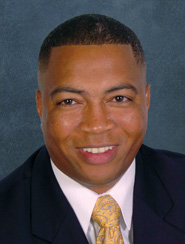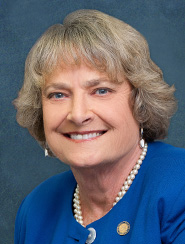One hundred thirty-two Catholic Professors have taken “the extraordinary step” of signing a letter that asks all Catholic Bishops to stand up and firmly oppose Common Core. The letter states, “[W]e are convinced that Common Core is so deeply flawed that it should not be adopted by Catholic schools which have yet to approve it, and that those schools which have already endorsed it should seek an orderly withdrawal now.”
The letter states, “Sadly, over one hundred Catholic dioceses have set aside our teaching tradition in favor of these secular standards. Common Core adopts a bottom-line, pragmatic approach to education. The heart of its philosophy is, as far as we can see, that it is a waste of resources to ‘over-educate’ people.”
The letter notes that, “[N]otwithstanding the good intentions of those who made these decisions, Common Core was approved too hastily and with inadequate consideration of how it would change the character and curriculum of our nation’s Catholic schools. We believe that implementing Common Core would be a grave disservice to Catholic education in America.”
The below letter was sent to each Catholic bishop in the United States. At the end are the names of the 132 Catholic professors who signed the letter.
Gerard V. Bradley, Professor of Law
c/o University of Notre Dame, The Law School
3156 Eck Hall of Law, PO Box 780
Notre Dame, IN 46556
October 16, 2013
Your Excellency:
We are Catholic scholars who have taught for years in America’s colleges and universities. Most of us have done so for decades. A few of us have completed our time in the classroom; we are professors “emeriti.” We have all tried throughout our careers to put our intellectual gifts at the service of Christ and His Church. Most of us are parents, too, who have seen to our children’s education, much of it in Catholic schools. We are all personally and professionally devoted to Catholic education in America.
For these reasons we take this extraordinary step of addressing each of America’s Catholic bishops about the “Common Core” national reform of K-12 schooling. Over one hundred dioceses and archdioceses have decided since 2010 to implement the Common Core. We believe that, notwithstanding the good intentions of those who made these decisions, Common Core was approved too hastily and with inadequate consideration of how it would change the character and curriculum of our nation’s Catholic schools. We believe that implementing Common Core would be a grave disservice to Catholic education in America.
In fact, we are convinced that Common Core is so deeply flawed that it should not be adopted by Catholic schools which have yet to approve it, and that those schools which have already endorsed it should seek an orderly withdrawal now.
Why – upon what evidence and reasoning – do we take such a decisive stand against a reform that so many Catholic educators have endorsed, or at least have acquiesced in? In this brief letter we can only summarize our evidence and sketch our reasoning. We stand ready, however, to develop these brief points as you wish. We also invite you to view the video recording of a comprehensive conference critically examining Common Core, held at the University of Notre Dame on September 9, 2013. (For a copy of the video, please contact Professor Gerard Bradley at the address above.)
News reports each day show that a lively national debate about Common Core is upon us. The early rush to adopt Common Core has been displaced by sober second looks,and widespread regrets. Several states have decided to “pause” implementation. Others have opted out of the testing consortia associated with Common Core. Prominent educators and political leaders have declared their opposition. The national momentum behind Common Core has, quite simply, stopped. A wave of reform which recently was thought to be inevitable now isn’t. Parents of K- 12 children are leading today’s resistance to the Common Core. A great number of these parents are Catholics whose children attend Catholic schools.
Much of today’s vigorous debate focuses upon particular standards in English and math. Supporters say that Common Core will “raise academic standards.” But we find persuasive the critiques of educational experts (such as James Milgram, professor emeritus of mathematics at Stanford University, and Sandra Stotsky, professor emerita of education at the University of Arkansas) who have studied Common Core, and who judge it to be a step backwards. We endorse their judgment that this “reform” is really a radical shift in emphasis, goals, and expectations for K-12 education, with the result that Common Core-educated children will not be prepared to do authentic college work. Even supporters of Common Core admit that it is geared to prepare children only for community-college-level studies.
No doubt many of America’s Catholic children will study in community colleges. Some will not attend college at all. This is not by itself lamentable; it all depends upon the personal vocations of those children, and what they need to learn and do in order to carry out the unique set of good works entrusted to them by Jesus. But none of that means that our Catholic grade schools and high schools should give up on maximizing the intellectual potential of every student. And every student deserves to be prepared for a life of the imagination, of the spirit, and of a deep appreciation for beauty, goodness, truth, and faith.
The judgments of Stotsky and Milgram (among many others) are supported by a host of particulars. These particulars include when algebra is to be taught, whether advanced mathematics coursework should be taught in high school, the misalignment of writing and reading standards, and whether cursive writing is to be taught. We do not write to you, however, to start an argument about particulars. At least, that is a discussion for another occasion and venue. We write to you instead because of what the particular deficiencies of Common Core reveal about the philosophy and the basic aims of the reform. We write to you because we think that this philosophy and these aims will undermine Catholic education, and dramatically diminish our children’s horizons.
Promoters of Common Core say that it is designed to make America’s children “college and career ready.” We instead judge Common Core to be a recipe for standardized workforce preparation. Common Core shortchanges the central goals of all sound education and surely those of Catholic education: to grow in the virtues necessary to know, love, and serve the Lord, to mature into a responsible, flourishing adult, and to contribute as a citizen to the process of responsible democratic self-government. Common Core adopts a bottom-line, pragmatic approach to education. The heart of its philosophy is, as far as we can see, that it is a waste of resources to “over-educate” people. The basic goal of K-12 schools is to provide everyone with a modest skill set; after that, people can specialize in college – if they end up there. Truck-drivers do not need to know Huck Finn. Physicians have no use for the humanities. Only those destined to major in literature need to worry about Ulysses.
Perhaps a truck-driver needs no acquaintance with Paradise Lost to do his or her day’s work. But everyone is better off knowing Shakespeare and Euclidean geometry, and everyone is capable of it. Everyone bears the responsibility of growing in wisdom and grace and in deliberating with fellow-citizens about how we should all live together. A sound education helps each of us to do so.
The sad facts about Common Core are most visible in its reduction in the study of classic, narrative fiction in favor of “informational texts.” This is a dramatic change. It is contrary to tradition and academic studies on reading and human formation. Proponents of Common Core do not disguise their intention to transform “literacy” into a “critical” skill set, at the expense of sustained and heartfelt encounters with great works of literature.
Professor Stotsky was the chief architect of the universally-praised Massachusetts English language arts standards, which contributed greatly to that state’s educational success. She describes Common Core as an incubator of “empty skill sets . . . [that] weaken the basis of literary and cultural knowledge needed for authentic college coursework.” Rather than explore the creativity of man, the great lessons of life, tragedy, love, good and evil, the rich textures of history that underlie great works of fiction, and the tales of self-sacrifice and mercy in the works of the great writers that have shaped our cultural literacy over the centuries, Common Core reduces reading to a servile activity.
Professor Anthony Esolen, now at Providence College, has taught literature and poetry to college students for two decades. He provided testimony to a South Carolina legislative committee on the Common Core, lamenting its “cavalier contempt for great works of human art and thought, in literary form.” He further declared: “We are not programming machines. We are teaching children. We are not producing functionaries, factory-like. We are to be forming the minds and hearts of men and women.”
Thus far Common Core standards have been published for mathematics and English language arts. Related science standards have been recently released by Achieve, Inc. History standards have also been prepared by another organization. No diocese (for that matter, no state) is bound to implement these standards just by dint of having signed onto Common Core’s English and math standards. We nonetheless believe that the same financial inducements, political pressure, and misguided reforming zeal that rushed those standards towards acceptance will conspire to make acceptance of the history and science standards equally speedy – and unreflective and unfortunate.
These new standards will very likely lower expectations for students, just as the Common Core math and English standards have done. More important, however, is the likelihood that they will promote the prevailing philosophical orthodoxies in those disciplines. In science, the new standards are likely to take for granted, and inculcate students into a materialist metaphysics that is incompatible with, the spiritual realities –soul, conceptual thought, values, free choice, God– which Catholic faith presupposes.
We fear, too, that the history standards will promote the easy moral relativism, tinged with a pervasive anti-religious bias, that is commonplace in collegiate history departments today.
Common Core is innocent of America’s Catholic schools’ rich tradition of helping to form children’s hearts and minds. In that tradition, education brings children to the Word of God. It provides students with a sound foundation of knowledge and sharpens their faculties of reason. It nurtures the child’s natural openness to truth and beauty, his moral goodness, and his longing for the infinite and happiness. It equips students to understand the laws of nature and to recognize the face of God in their fellow man.
Education in this tradition forms men and women capable of discerning and pursuing their path in life and who stand ready to defend truth, their church, their families, and their country.
The history of Catholic education is rich in tradition and excellence. It embraces the academic inheritance of St. Anselm, St. Augustine, St. Thomas Aquinas, and Blessed John Henry Newman. In contrast to such academic rigor, the Common Core standards lack an empirical evidentiary basis and have not been field-tested anywhere. Sadly, over one hundred Catholic dioceses have set aside our teaching tradition in favor of these secular standards.
America’s bishops have compiled a remarkable record of success directing Catholic education in America, perhaps most notably St. John Neumann and the Plenary
Councils of Baltimore. Parents embrace that tradition and long for adherence to it – indeed, for its renaissance. That longing reflects itself in the growing Catholic homeschool and classical-education movements and, now, in the burgeoning desire among Catholic parents for their dioceses to reject the Common Core.
Because we believe that this moment in history again calls for the intercession of each bishop, we have been made bold to impose upon your time with our judgments of Common Core.
Faithfully in Christ, we are:
Institutional Affiliations Are for Identification Purposes Only
Gerard Bradley
Professor of Law
University of Notre Dame
Robert P. George
McCormick Professor of Jurisprudence
Princeton University
Anthony M. Esolen
Professor of English
Providence College
Anne Hendershott
Professor of Sociology
Franciscan University of Steubenville
Kevin Doak
Professor
Georgetown University
Joseph A. Varacalli
S.U.N.Y. Distinguished Service Professor
Nassau Community College-S.U.N.Y.
Patrick McKinley Brennan
John F. Scarpa Chair in Catholic Legal Studies
Villanova University School of Law
Robert Fastiggi, Ph.D.
Professor of Systematic Theology
Detroit, MI
Duncan Stroik
Professor of Architecture
University of Notre Dame
Thomas F. Farr
Director, Religious Freedom Project and
Visiting Associate Professor
Georgetown University
Matthew J. Franck, Ph.D.
Director, Simon Center on Religion and the Constitution
Witherspoon Institute
Ronald J. Rychlak
Butler Snow Lecturer and Professor of Law
University of Mississippi, School of Law
V. Bradley Lewis
Associate Professor of Philosophy
The Catholic University of America
Patrick J. Deneen
David A. Potenziani Memorial Associate
Professor of Political Science
University of Notre Dame
E. Christian Brugger, D.Phil.
J. Francis Cardinal Stafford Professor of Moral Theology
Saint John Vianney Theological Seminary, Denver
Kenneth L. Grasso
Professor of Political Science
Texas State University
James Hitchcock
Professor of History
Saint Louis University
Maria Sophia Aguirre, Ph.D.
Director of Economics Programs and Academic Chair
The Catholic University of America
Fr. Joseph Koterski SJ
President, Fellowship of Catholic Scholars
Fordham University
Francis J. Beckwith
Professor of Philosophy and Church-State Studies
Baylor University
Thomas V. Svogun
Professor of Philosophy and Administration
of Justice and Chairman of the Department of Philosophy
Salve Regina University
Scott W Hahn
Professor of Theology
Franciscan University of Steubenville
Eduardo J. Echeverria, Ph.D., S.T.L.
Professor of Philosophy and Systematic Theology
Sacred Heart Major Seminary
Ryan J. Barilleaux, Ph.D.
Paul Rejai Professor of Political Science
Miami University (Ohio)
Brian Simboli, Ph.D.
Science Librarian
Lehigh University
John A. Gueguen
Emeritus Professor, Political Philosophy
Illinois State University
G. Alexander Ross
Institute for the Psychological Sciences
Suzanne Carpenter, Ph.D., R.N.
Associate Professor of Nursing
Retired
Patrick Lee
McAleer Professor of Bioethics
Franciscan University of Steubenville
Peter J. Colosi, PhD
Associate Professor of Moral Theology
St. Charles Borromeo Seminary
Dr. Robert Hunt
Professor of Political Science
Kean University
Matthew Cuddeback, PhD
Assistant Professor of Philosophy
Providence College
Dr. Joseph H. Hagan
President Emeritus
Assumption College
John A. Cuddeback, PhD
Professor of Philosophy
Christendom College
Dr. Michael J. Healy
Professor and Chair of Philosophy
Franciscan University of Steubenville
Thomas Hibbs
Dean of the Honors College
Baylor University
Susan Orr Traffas
Co-Director, Honors Program
Benedictine College
Michael J. Behe
Professor of Biological Sciences
Lehigh University
Thomas R. Rourke
Professor of Politics
Clarion University
Robert H Holden
Professor, Dept. of History
Old Dominion University
Philip J. Harold
Associate Dean, School of Education and
Social Sciences
Robert Morris University
David T. Murphy, Ph.D.
Dept. of Modern & Classical Languages
Saint Louis University
W. H. Marshner
Professor of Theology
Christendom College
David W. Fagerberg
Associate Professor, Theology
University of Notre Dame
Melissa Moschella
Assistant Professor of Philosophy
Catholic University of America
Daniel J. Costello, Jr.
Bettex Professor of Electrical Engineering,
Emeritus
University of Notre Dame
Brian Scarnecchia,
Associate Professor of Law
Ave Maria School of Law
Thomas Behr
Assistant Professor of Comparative Cultural
Studies
University of Houston
Bernard Dobranski
Dean Emeritus and Professor of Law
Ave Maria School of Law
Daniel Philpott
Professor, Political Science and Peace Studies
University of Notre Dame
Anne Barbeau Gardiner
Professor emerita, Dept of English
John Jay College, CUNY
C.C. Pecknold
Assistant Professor of Theology
The Catholic University of America
Anthony Low
Professor Emeritus of English
New York University
Heather Voccola
Adjunct Professor of Church History
Holy Apostles College and Seminary
Raymond F. Hain, PhD
Assistant Professor of Philosophy
Providence College
Catherine Abbott
Professor of Mathematics
Keuka College
Thérèse Bonin
Associate Professor of Philosophy
Duquesne University
Dr. Francis P. Kessler
Prof. Political Science
Benedictine College
Christopher Wolfe
Co-Director, Thomas International Center
Emeritus Professor, Marquette University
Carson Holloway
Associate Professor of Political Science
University of Nebraska at Omaha
Stephen M. Krason, J.D., Ph.D.
President
Society of Catholic Social Scientists
Laura Hirschfeld Hollis
Associate Professional Specialist and
Concurrent Associate Professor of Law
University of Notre Dame
Wilson D. Miscamble, C.S.C.,
Professor of History
University of Notre Dame
Stephen M. Barr
Professor of Physics
University of Delaware
D.C. Schindler
Associate Professor of Metaphysics and Anthropology
The John Paul II Institute for Studies on Marriage and Family
Jeanne Heffernan Schindler
Senior Research Fellow
Center for Cultural and Pastoral Concerns
David L. Schindler
Gagnon Professor of Fundamental Theology
Pontifical John Paul II Institute, Catholic University of America
Rev. Edward Krause, C.C.C.
Professor of Social Sciences, Emeritus
Gannon University
Christopher O. Tollefsen
Professor of Philosophy
University of South Carolina
Paige E. Hochschild
Assistant Professor of Theology
Mount St. Mary’s University
Robert C. Jeffrey
Professor of Government
Wofford College
Rev. Anthony E. Giampietro, CSB
Executive Vice President and Academic Dean
Saint Patrick’s Seminary & University
Dr. Roger Loucks
Associate Prof. of Physics
Alfred University
J. Daniel Hammond
Professor of Economics
Wake Forest University
Kenneth R. Hoffmann, Ph.D.
Professor of Neurosurgery
SUNY at Buffalo
Timothy T. O’Donnell, STD, KGCHS
President Christendom College
Thomas W. Jodziewicz
Department of History
University of Dallas
Sr J. Sheila Galligan IHM
Professor of Theology
Immaculata University
Maura Hearden
Assistant Professor of Theology
DeSales University
Robert Gorman
University Distinguished Professor of
Political Science
Texas State University
Steven Justice
Professor of English
University of California, Berkeley and University of Mississippi
Carol Nevin (Sue) Abromaitis
Professor of English
Loyola University Maryland
Dr. Sean Innerst
Theology Cycle Director,
St. John Vianney Theological Seminary
Robert A. Destro
Professor of Law & Director
The Catholic University of America
Richard Sherlock
Prof. of Philosophy
Utah State University
Adrian J. Reimers
Adjunct Assistant Professor in Philosophy
University of Notre Dame
Dr. Jessica M. Murdoch
Assistant Professor of Fundamental and Dogmatic Theology
Villanova University
Mary Shivanandan, S.T.L., S.T.D.
Professor of Theology Retired
John Paul II Institute for Studies on Marriage and Family at
The Catholic University of America
Alice M. Ramos
Professor of Philosophy
St. John’s University
Dennis J. Marshall, Ph.D.
Professor of Theology
Aquinas College
Dennis D. Martin
Associate Professor of Theology
Loyola University Chicago
Janet E. Smith
Father Michael J. McGivney Chair of Life Ethics
Sacred Heart Major Seminary
Leonard J. Nelson,III
Retired Professor of Law
Samford University
Charles D. Presberg, PhD
Associate Professor of Spanish
University of Missouri-Columbia
Brian T. Kelly
Dean
Thomas Aquinas College
Michael F. McLean
President
Thomas Aquinas College
Philip T. Crotty
Professor of Management (Emeritus)
Northeastern University
James Matthew Wilson
Assistant Professor of Literature
Villanova University
R. E. Houser
Bishop Wendelin J. Nold Chair in Graduate Philosophy
University of St. Thomas (TX)
Gary D. Glenn
Distinguished Teaching Professor Emeritus
Department of Political Science, Northern Illinois University
Cynthia Toolin, Ph.D.
Professor of Dogmatic and Moral Theology
Holy Apostles College and Seminary
Virginia L. Arbery, Ph. D.
Associate Professor of Humanities
Wyoming Catholic College
Maryanne M. Linkes, Esquire
Adjunct Professor
University of Pittsburgh & Community
College of Allegheny County
James Likoudis, M.S.Ed.
Education writer
Montour Falls, NY 14865
Dr. Emil Berendt
Assistant Professor of Economics
Mount St. Mary’s University
David F. Forte
Professor of Law
Cleveland State University
Anthony W. Zumpetta, Ed.D.
Professor Emeritus
West Chester University (PA)
Thomas D. Watts
Professor Emeritus
University of Texas, Arlington
Catherine Ruth Pakaluk, PhD
Assistant Professor of Economics
Ave Maria University
Craig S. Lent
Freimann Professor of Electrical Engineering
University of Notre Dame
Christina Jeffrey, Ph.D.
Lecturer on the Foundations of American Government
Wofford College
Robert G Kennedy
Professor of Catholic Studies
University of St Thomas (MN)
Holly Taylor Coolman
Assistant Professor, Dept. of Theology
Providence College
Raymond F. Hain, PhD
Assistant Professor of Philosophy
Providence College
David Whalen
Provost
Hillsdale College
David M. Wagner
Professor of Law
Regent University School of Law
John G. Trapani, Jr., Ph.D.
Professor of Philosophy
Walsh University
Tina Holland, Ph.D.
South Bend, Indiana
James F. Papillo, J.D., Ph.D
Former Vice President of Administrative
Affairs and Associate Professor in the Humanities
Holy Apostles College and Seminary
Dr. J. Marianne Siegmund
Theo. Department and SCSS member
University of Dallas
Dr. Daniel Hauser
Professor of Theology
University of St. Francis
Joshua Hochschild
Mount St. Mary’s University
William Edmund Fahey, Ph.D.
Fellow and President
The Thomas More College of Liberal Arts
John C. McCarthy
Dean, School of Philosophy
The Catholic University of America
Christopher O. Blum
Academic Dean
Augustine Institute
Chiyuma Elliott
Assistant Professor of English and African-American Studies
University of Mississippi
Mark C. Henrie
Senior V.P., Chief Academic Officer
Intercollegiate Studies Institute
Jeffrey Tranzillo, Ph.D.
Professor, Systematic Theology
Craig Steven Titus, S.Th.D/Ph.D.
Associate Professor
Director of Integrative Studies
Institute of the Psychological Sciences
Rev. Peter M.J. Stravinskas, Ph.D., S.T.D.
Executive Director
Catholic Education Foundation
William W. Kirk
Vice President for Student Affairs and General Counsel
Ave Maria University
Curt H. Stiles, Ph.D.
Professor of Business Policy
Cameron School of Business
University of North Carolina




























